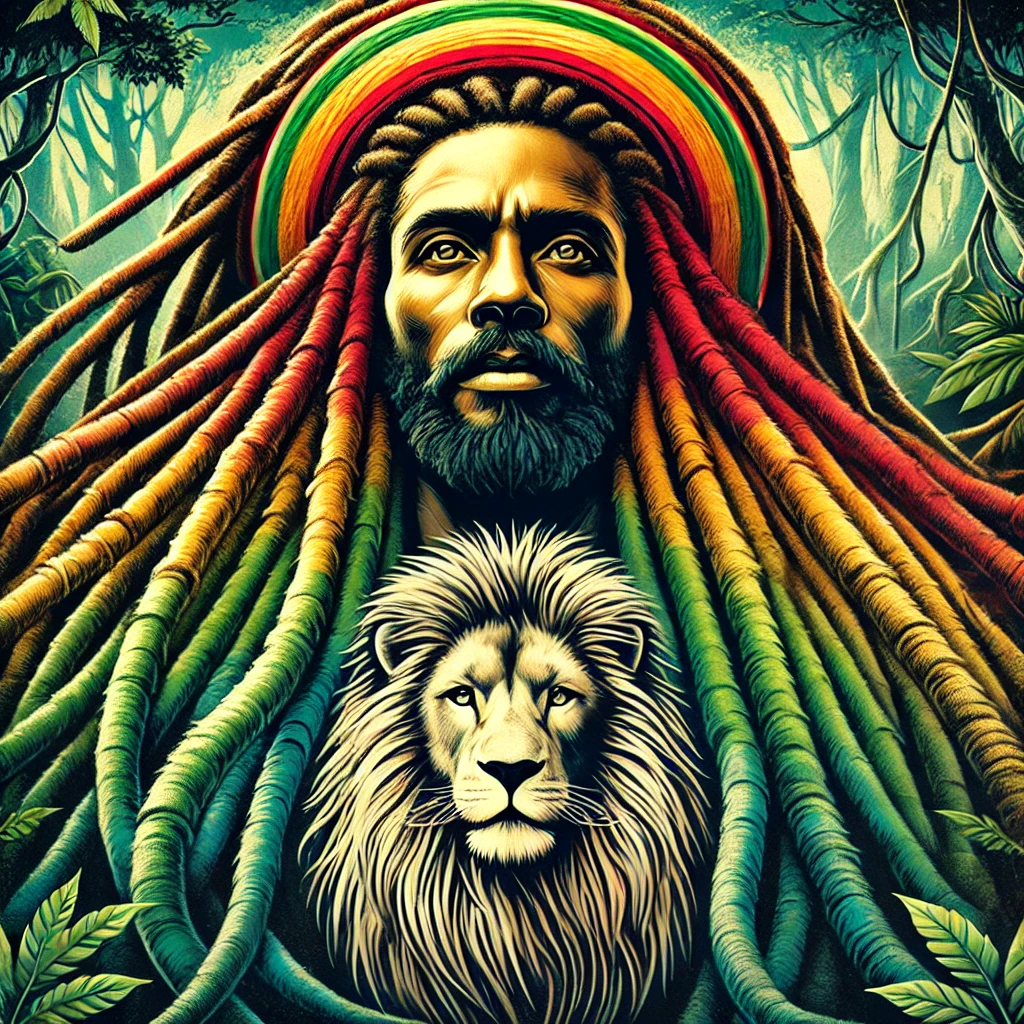In Rastafarian culture, dreadlocks are more than just a hairstyle. Dem are a powerful symbol of spiritual strength, resistance to oppression, and deep connection to African roots. Worn proudly by Rastafarians, dreadlocks carry a rich meaning that ties back to biblical teachings, cultural identity, and the natural order of life.
The Spiritual Significance of Dreadlocks
For Rastas, dreadlocks represent a covenant with Jah (God). Dreadlocks are often associated with the Nazarite vow, a biblical tradition where one refrains from cutting their hair as a sign of dedication and spiritual strength. In the Book of Numbers, di Nazarites would let their locks grow as a form of devotion, and Rastafarians see dis practice as a way to honor Jah and live a life in alignment with his will.
Dreadlocks also symbolize di lion’s mane, which is a powerful reference to the Lion of Judah, one of the most sacred symbols in Rastafarianism. The Lion of Judah represents Haile Selassie I, di Rasta messiah, and is seen as a symbol of divine authority and courage. By wearing dreadlocks, Rastas embody the strength, pride, and dignity of the lion.
Resistance Against Babylon
Dreadlocks are also a form of rebellion against Babylon, which represents di materialistic, oppressive, and corrupt system of Western society. For Rastafarians, wearing dreadlocks is an act of defiance against di standards of beauty imposed by Babylon. It’s a way to reject the expectations of Babylon and stay true to African roots and natural living.
In a world that often judges based on appearance, dreadlocks send a message of inner strength and resistance. Rastafarians use their locks to show that they refuse to conform to Babylon’s ideals and are standing firm in their spiritual beliefs and natural lifestyle.
A Connection to African Heritage
Dreadlocks are also a powerful connection to African ancestry and identity. Rastas believe that by letting their hair grow naturally and form locks, they are embracing their African roots and rejecting di colonial standards of beauty that have been imposed on people of African descent for centuries. Dreadlocks are a way to reconnect with di traditions and spiritual practices of African ancestors, celebrating cultural identity and self-love.
In many African cultures, natural hair is seen as a source of spiritual power and wisdom. By growing their locks, Rastas honor their heritage and maintain a physical link to their ancestors.
Natural Living and Livity
Dreadlocks also represent the Rastafarian principle of livity – a way of life that emphasizes living in harmony with nature and di universe. By letting their hair grow freely without interference, Rastas are practicing livity by embracing di natural order of things. Dreadlocks grow naturally and without manipulation, reflecting the Rasta commitment to living a pure and unaltered life in alignment with Jah’s creation.
Livity is not just about how one looks; it’s a philosophy that includes eating natural foods, avoiding toxins, and living in a way that respects di Earth and all its creatures. Dreadlocks are a physical expression of this way of life, representing a commitment to simplicity, purity, and spiritual integrity.
Symbol of Unity and Brotherhood
Among Rastafarians, dreadlocks also symbolize unity and community. Rastas see their locks as a mark of belonging to a larger family of like-minded individuals who share similar spiritual and cultural beliefs. Dreadlocks create a sense of brotherhood and sisterhood among Rastas, where each individual is seen as part of di collective struggle for spiritual enlightenment and liberation.
Dreadlocks are worn proudly as a reminder that no matter where life takes dem, Rastas are connected through their faith, their culture, and their shared resistance to Babylon.
Modern-Day Dreadlocks
While dreadlocks are deeply rooted in Rastafarian spirituality and culture, they have also become popular around di world, embraced by people from many different backgrounds. Though some wear locks for fashion or personal reasons, for Rastafarians, dreadlocks will always carry a deeper, spiritual meaning.
Today, dreadlocks continue to serve as a symbol of empowerment, resilience, and di ongoing fight against oppression. Through their locks, Rastafarians communicate their connection to Jah, their pride in African heritage, and their unyielding resistance to di forces of Babylon.

